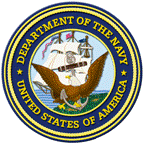United States Department of Defense

United States Navy: Publications
Date of this Version
5-2-2017
Citation
Released by HOUSE SUBCOMMITTEE ON MILITARY PERSONNEL, 115th Congress
Abstract
As directed by Congress, DoD assessed the Military Service Academies (MSA) to determine the effectiveness of policies, training, and procedures with respect to Sexual Harassment (SH) and Sexual Assault (SA) involving Academy personnel. DoD accomplished this assessment by reviewing Academy self-assessments and through the administration of the 2016 Service Academy Gender Relations (SAGR) Survey (June 1, 2015 - May 31, 2016), which focused on four specific areas: SA prevention, SA response, efforts to address retaliatory behavior, and SH prevention and response. Results of this survey are informing modifications to our current prevention efforts. Specifically, our future focus will concentrate more on the appropriate use of alcohol and the effects that misuse and binge drinking have on the ability of midshipmen (MIDN) to make sound decisions. The second change in emphasis will address the importance of healthy relationships as MIDN and as they transition from college students to commissioned officers in the Navy and Marine Corps. The final focus will be to more effectively convey what consent entails between two adults and its importance in treating each other with dignity and respect. The Naval Academy will continue to be forthright and honest about our Sexual Assault Prevention and Response (SAPR) program. Although we have invested significant time and effort in educating the Brigade of Midshipmen, faculty, and staff, results of the Survey indicate that we still have much work to do. Our program uses evidence-based training and we continually evaluate feedback from our MIDN, faculty and staff on ways to improve the program to eliminate SA and SH; behavior which is toxic to military readiness in our Navy and Marine Corps.


Comments
U.S. government work